Welcome to the collection of best soup recipes. Soups are where taste meets nutrition! Soups are not only popular because of their delicious flavors, but since they are packed with vital nutrients, they play an invaluable role in promoting a healthy and well-balanced diet. These hearty broths of vegetables, meats, and legumes contain essential vitamins, minerals, and antioxidants that fortify our bodies, making them an ideal component of a nourishing meal.

Table of Contents
- About soup recipes
- Why do people love soups?
- Expert Chef Tips
- List of Best Soup Recipes
- Important FAQs
About soup recipes
Whether you prefer a comforting bowl of chicken noodle soup, a hearty butternut squash soup, a rich French onion soup, or a savory lentil stew, the versatility of soups ensures there’s a wholesome option for every palate. So, savor the goodness and relish the benefits of the best soups as they elevate your overall well-being and contribute to a robust and wholesome lifestyle.
If you like such recipe collections, be sure to check out our curated list of Super Bowl recipes, popular Chicken dishes, best Mushroom recipes, and must-try American desserts for those with a sweet tooth.
Why do people love soups?
- Comforting and Nostalgic: Soups often evoke warm memories of home-cooked meals and comforting moments.
- Ease of Preparation: Many soup recipes are simple and require minimal effort, making them accessible to both beginner and expert cooks.
- Nutritional Value: Soups are packed with vitamins, minerals, and essential nutrients.
- Easy to Reheat and Store: Soups often taste even better after resting, and they can be stored and reheated without losing their flavors.
- Budget-Friendly: Using simple and affordable ingredients, soups offer a cost-effective way to prepare nourishing meals for individuals and families.
- Immune-Boosting Properties: Certain soup ingredients, like garlic, ginger, vegetables, and bone broth can contribute to immune system support and overall well-being.
Expert Chef Tips
- Build Layers of Flavor: Sauté aromatics like onions, garlic, and spices in oil or butter at the beginning to enhance the soup’s overall taste.
- Homemade Broth: Whenever possible, use homemade broth or stock for richer and more flavorful soups. If you are in a rush, use store-bought broth or simply use water.
- Don’t Overcook Vegetables: Add delicate vegetables towards the end of cooking to avoid mushiness and retain their color and nutrients.
- Use Fresh Herbs: Incorporate fresh herbs near the end of cooking for a burst of freshness and vibrant aroma.
- Creaminess without Cream: For a healthier soup, use pureed vegetables like cauliflower or beans to achieve creaminess instead of heavy cream.
- Let It Rest: Allow the soup to rest for a while before serving to meld the flavors together and improve taste.
- Skim Fat: If using meat-based broths, skim off excess fat during cooking for a cleaner and lighter soup.
- Garnish Creatively: We first feast with our eyes. Finish the soup with creative garnishes like fresh herbs, grated cheese, or a drizzle of infused oil for added visual appeal.
List of Best Soup Recipes
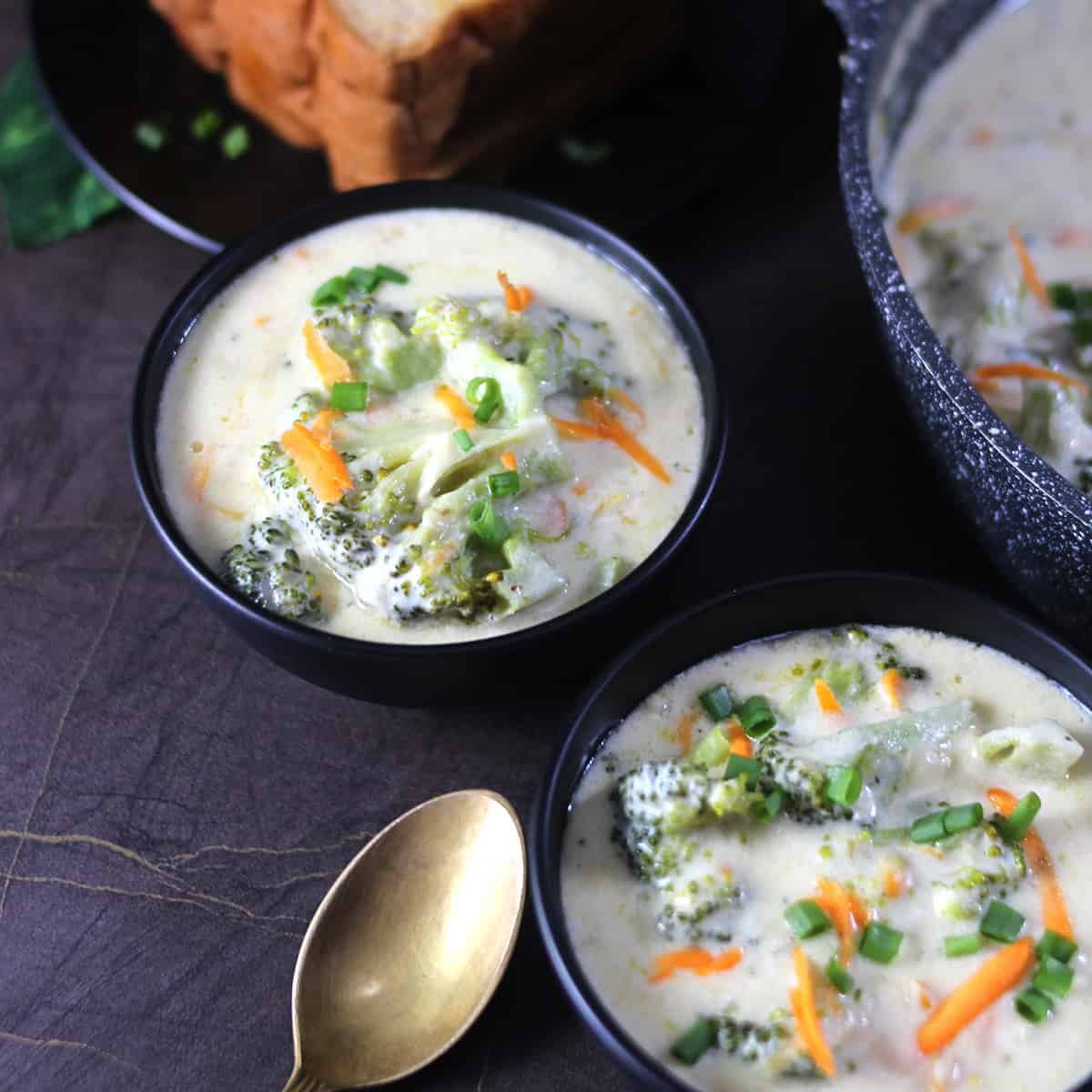
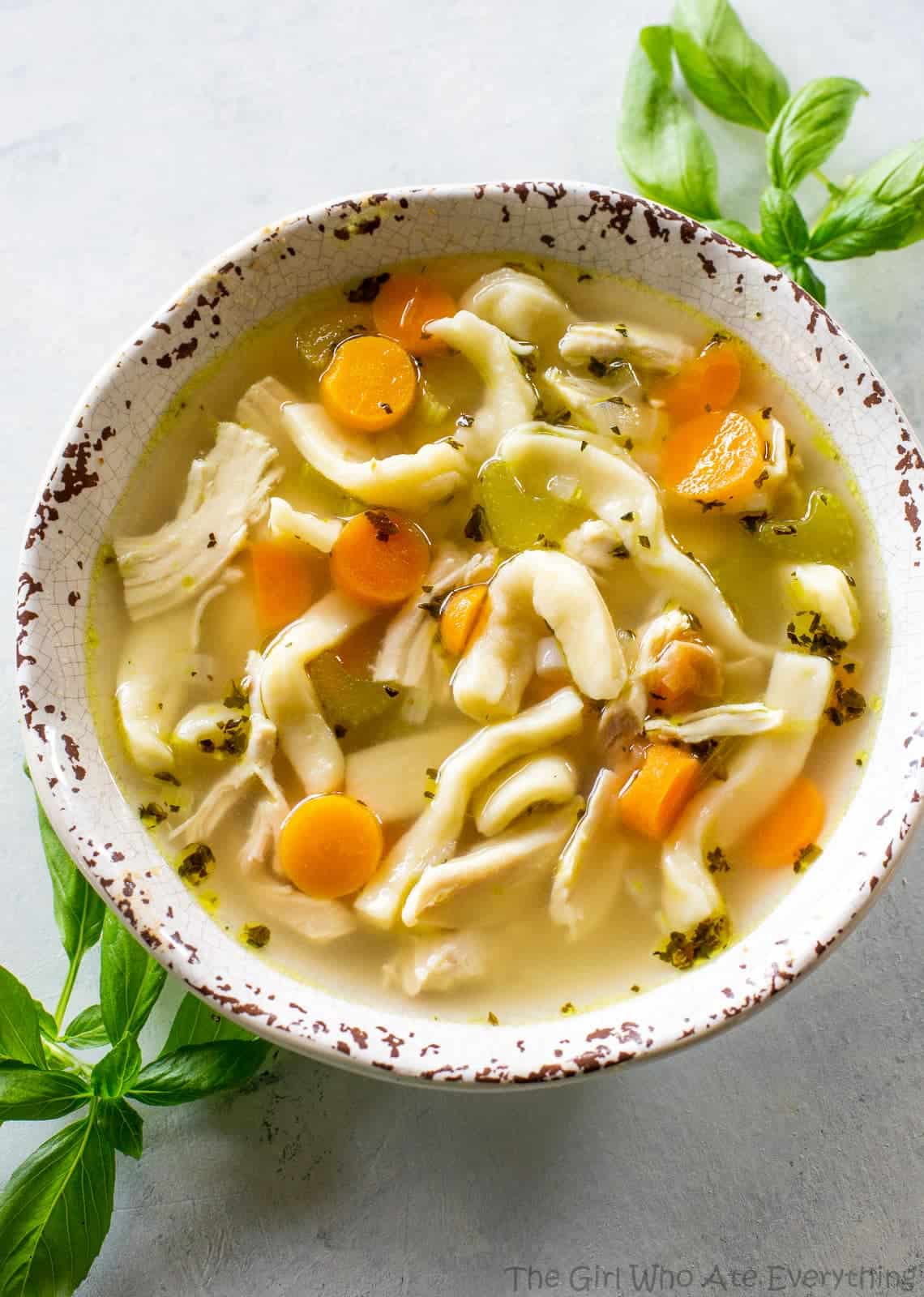
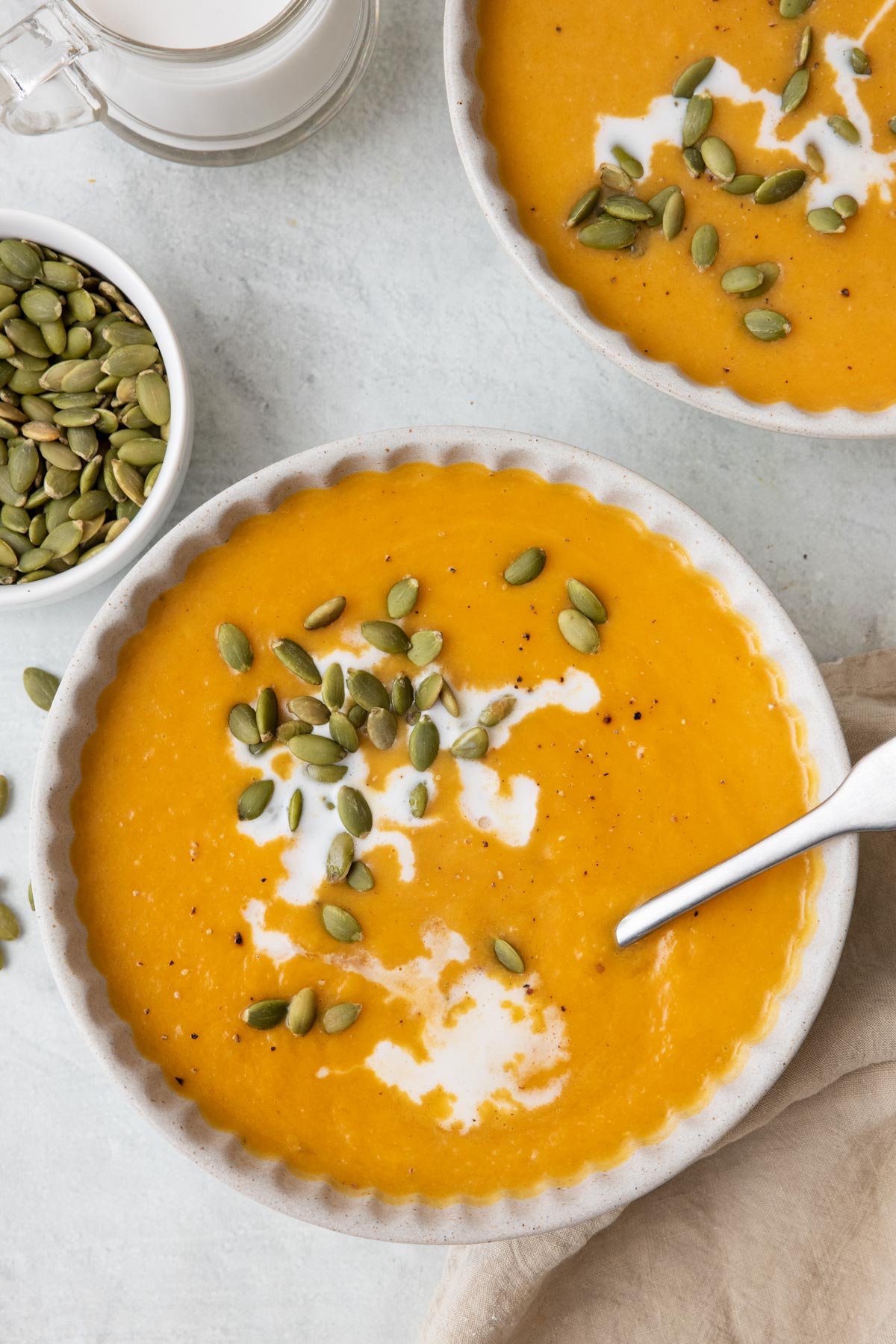


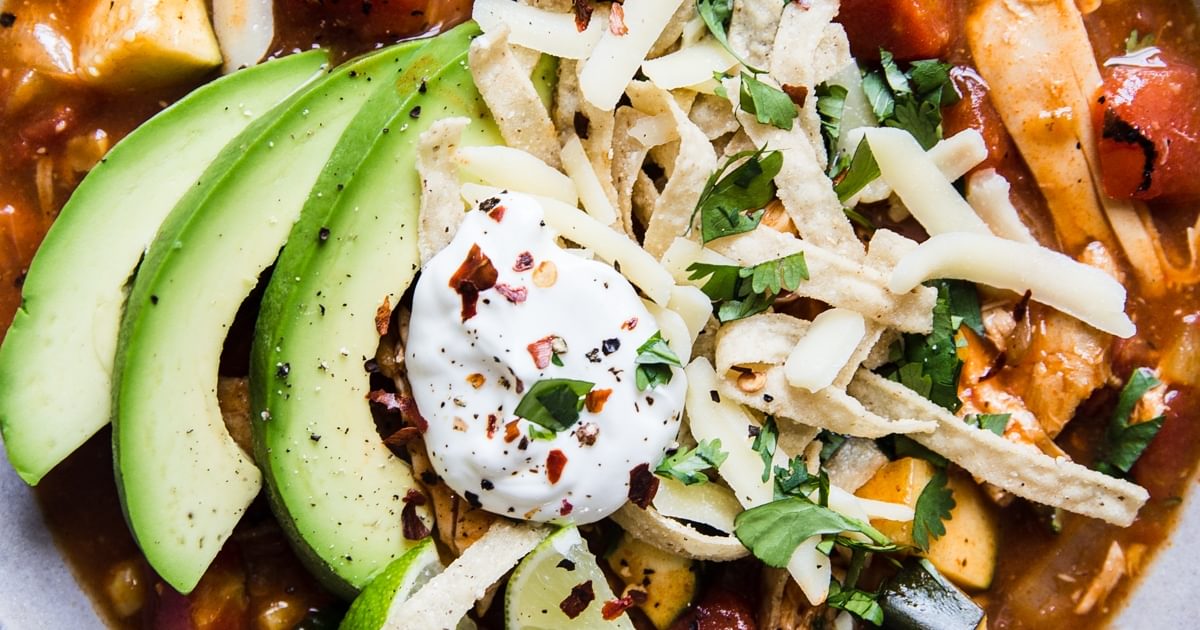



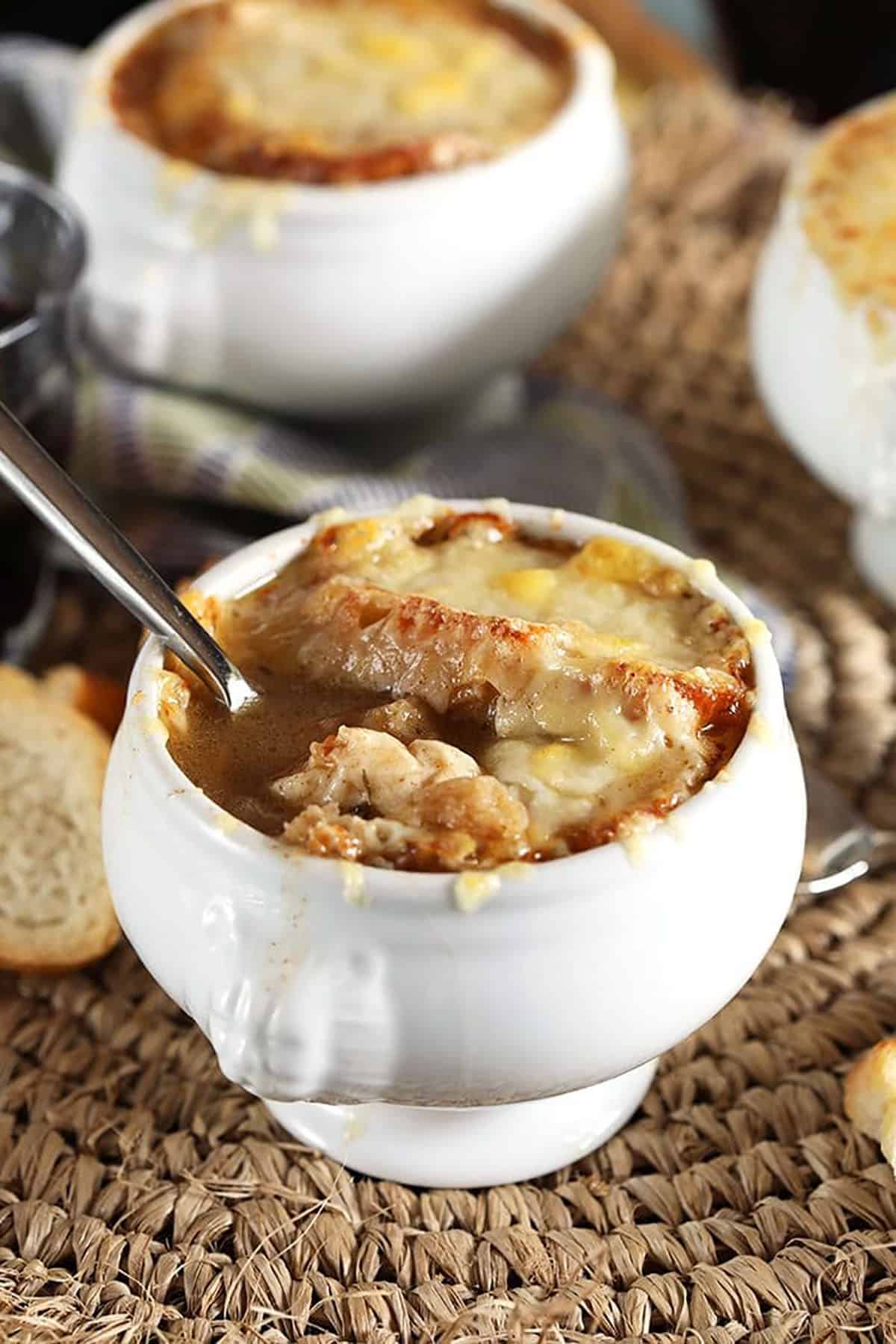
Important FAQs
To thicken a thin soup, you have several options. The easiest way is to simmer the soup longer to reduce its liquid content and concentrate the flavors. Alternatively, you can mix cornstarch or flour with water to create a slurry and then stir it into the soup while it simmers. Another method is to add pureed vegetables or beans, which will lend both thickness and nutrition to the soup.
If your soup is too salty, there are a few remedies.
One method is to dilute the soup by adding more liquid, such as water or unsalted broth.
You can also add some acidity, like a squeeze of lemon juice or a dash of vinegar, which can help counteract the saltiness.
Another option is to add some peeled raw potatoes to the soup and simmer them until they become soft, as the potatoes will absorb excess salt.
To store leftover soup, allow it to cool at room temperature for no more than two hours before transferring it to an airtight container. Refrigerate the soup promptly and consume it within 3-4 days. For longer storage, you can freeze the soup in a freezer-safe container for up to 2-3 months. When reheating, ensure the soup reaches a safe internal temperature of 165°F (74°C) to prevent the growth of harmful bacteria.
Start by adding more salt and pepper to enhance the overall taste.
Add more herbs and spices.
Add a splash of acidity from vinegar or citrus juice can brighten the flavors.
Absolutely! Many soups can be made in advance for special occasions. Prepare the soup as usual, let it cool, and then store it in the refrigerator in an airtight container. On the day of the occasion, reheat the soup gently on the stovetop or in the microwave, stirring occasionally. Some soups even taste better after resting for a few hours or overnight as the flavors meld together. Just remember to adjust the seasoning if needed before serving.
Did you like this recipe collection? Please leave a star ⭐️⭐️⭐️⭐️⭐️ rating below and/or a review in the comments section. You can also stay in touch with us through social media by following us on Pinterest, Facebook, Instagram, and Twitter.

Quick and Easy Soup Recipes
Ingredients
- 1. Best Broccoli Cheddar Soup [about 375 calories]
- 2. Chicken Noodle Soup
- 3. Roasted Butternut Squash Soup [approx. 350 calories]
- 4. Easy Vegetable Pasta Soup [under 250 calories]
- 5. Lentil Soup (with Instant Pot instructions) [about 250 calories]
- 6. Tortilla Soup [approx. 300 calories]
- 7. Egg Drop Soup [60 calories per serving]
- 8. Hot and Sour Soup [about 200 calories]
- 9. Cream of Mushroom Soup [approx. 175 calories]
- 10. Best French Onion Soup [approx. 550 calories]
Instructions
- Select your favorite soup recipe.
- Get all the ingredients required to make your favorite soup.
- Prepare the soup and enjoy!
